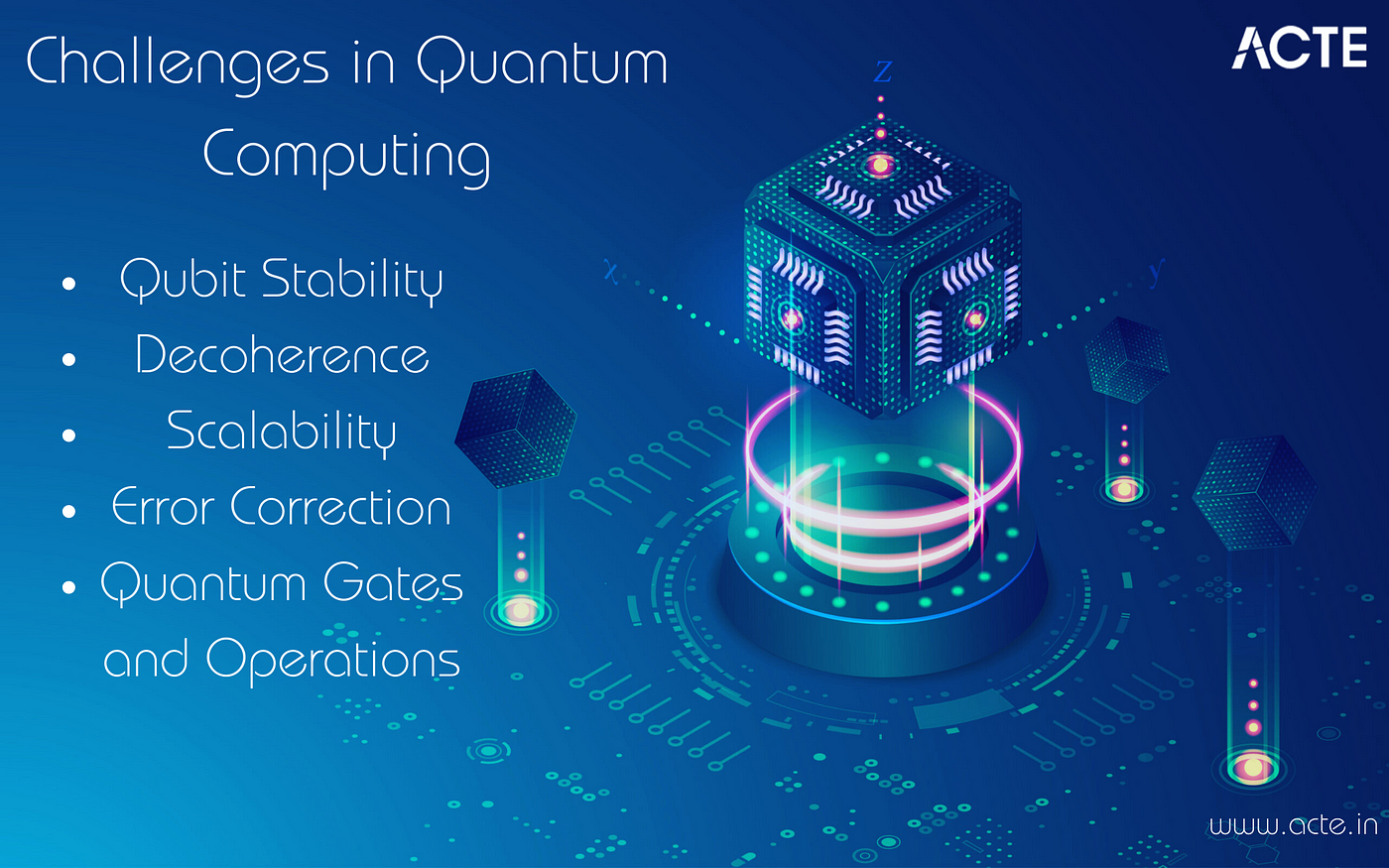In the ever-evolving landscape of technology, two groundbreaking fields have been making waves: quantum computing and artificial intelligence (AI). These fields, though distinct, are on a converging path that holds the promise of reshaping the way we solve complex problems and ushering in a new era of innovation. In this blog post, we will explore the synergies between quantum computing and AI, their current applications, and the exciting prospects they offer for the future.
Introduction: The Quantum Revolution
Quantum computing, a field rooted in the principles of quantum mechanics, represents a leap forward in computation power that defies the limitations of classical computing. While classical computers use bits as units of information (0 or 1), quantum computers leverage quantum bits or qubits, which can exist in multiple states simultaneously thanks to a phenomenon known as superposition. This unique property, along with entanglement and quantum tunneling, enables quantum computers to tackle problems that have long been considered computationally infeasible.
Artificial intelligence, on the other hand, encompasses a wide range of technologies that enable machines to perform tasks that typically require human intelligence, such as image recognition, natural language processing, and decision-making. AI has made significant strides in recent years, transforming industries from healthcare to finance.
The Intersection of Quantum Computing and AI
The intersection of quantum computing and AI is where the magic happens. Quantum computing has the potential to turbocharge AI algorithms, solving complex problems faster and more efficiently. Let’s delve into the synergies between these two transformative fields and their current applications.
- Speeding Up Machine Learning
Machine learning, a subset of AI, relies heavily on training models using vast datasets. Traditional computers can struggle with the computational demands of training complex models, limiting the pace of AI advancements. Quantum computers, with their parallel processing capabilities, can significantly accelerate this process. Quantum-enhanced machine learning algorithms promise faster training times, which could lead to more rapid breakthroughs in AI applications, including autonomous vehicles, drug discovery, and personalized medicine.
- Optimizing Complex Problems
Quantum computing is particularly adept at solving optimization problems, where the goal is to find the best solution among a vast number of possible options. This capability is highly relevant in AI applications such as supply chain management, logistics, and portfolio optimization. Quantum algorithms can efficiently search for optimal solutions, reducing costs and improving efficiency in various industries.
- Enhancing Cryptography and Security
Quantum computing’s computational prowess also poses challenges for traditional encryption methods. It can potentially break widely used encryption algorithms, putting sensitive data at risk. However, quantum computing can also be used to develop quantum-safe encryption methods that are resistant to quantum attacks. This intersection of quantum computing and cybersecurity is crucial in safeguarding the future of AI systems, particularly in fields like finance and healthcare, where data security is paramount.
- Solving Real-World Problems
AI and quantum computing together have the potential to address some of the most pressing global challenges. For example, they can help simulate and analyze complex biological systems, leading to breakthroughs in drug discovery and disease understanding. They can also optimize energy distribution grids, reducing waste and advancing sustainability efforts. Furthermore, quantum-enhanced AI can play a vital role in climate modeling and predicting natural disasters, contributing to more accurate climate change mitigation strategies.
Challenges and Hurdles to Overcome
While the synergy between quantum computing and AI holds immense promise, several challenges and hurdles must be addressed before we can fully harness their potential:
Quantum Hardware Development: Quantum computers are still in their infancy, and developing reliable quantum hardware remains a significant challenge. Overcoming issues related to qubit stability, error correction, and scalability is crucial for quantum computing to become mainstream.
Algorithm Development: Adapting classical AI algorithms to leverage quantum computing capabilities is a complex task. Researchers must develop quantum algorithms that are not only efficient but also compatible with existing AI frameworks.
Cost and Accessibility: Quantum computers are expensive to build and maintain. Ensuring accessibility to quantum computing resources for researchers and organizations worldwide is essential for widespread adoption.
Ethical Considerations: The power of quantum-enhanced AI also raises ethical concerns. It’s crucial to address issues related to privacy, security, and responsible AI development as these technologies advance.
The Quantum-AI Future: Possibilities and Beyond
As quantum computing technology matures and AI continues to advance, the future holds endless possibilities. Here are some of the exciting prospects on the horizon:
Drug Discovery Revolution: Quantum computing’s ability to simulate molecular interactions could lead to a revolution in drug discovery, accelerating the development of new treatments and therapies.
AI-Powered Quantum Research: AI can assist in optimizing quantum algorithms and hardware, potentially speeding up the development of quantum technologies.
Quantum Machine Learning: Quantum machine learning models could unlock new insights from massive datasets, leading to breakthroughs in fields like climate science and genomics.
Quantum Internet: The development of a quantum internet could facilitate secure communication and enable quantum-enhanced AI applications globally.
Conclusion: A Quantum Leap in AI
The convergence of quantum computing and artificial intelligence is not merely an intersection; it’s a quantum leap forward in our technological capabilities. These two fields, with their complementary strengths, have the potential to tackle challenges that were once considered insurmountable.
While there are obstacles to overcome and questions to address, the synergy between quantum computing and AI offers a glimpse into a future where we can harness the power of superposition and entanglement to transform industries, solve complex global problems, and unlock new frontiers of human knowledge. As quantum-enhanced AI continues to evolve, the possibilities are limited only by our imagination and our commitment to responsible innovation.





